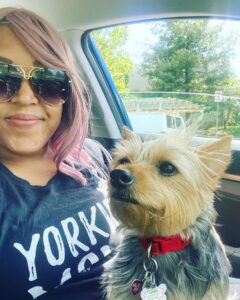By A. Young
Everyone’s treatment and recovery journey looks different.
Let’s start at the beginning. In 2014, I had a root canal.
To help with the pain, my doctor prescribed hydrocodone. They helped. When I ran out, I was still in pain. I asked my dentist, Is this normal? He assured me it was normal to still have some pain and gave me more pills.
Soon, it became an endless cycle. I had pain, so he prescribed more pills. More pain, more pills.
I could tell there was something wrong, but he didn’t listen. Just gave me more pills.
It wasn’t until two years later that I went to see a specialist. He found that my canal had not been properly cleaned and rectified the issue.
It was already too late. I had already formed an addiction to pills – anything I could get my hands on.
The Addiction
The year was 2016. I was in a REALLY bad mental and physical place. I was addicted to pills for two years at this point.
On top of that, I was drinking too much. I had a job where my boss had an addiction to alcohol. And I had been dumped by my boyfriend in the worst way possible – via text.
I left my support system behind – my friends, my family, and those who truly loved me.
I was struggling with the aftermath of an abusive relationship that I never received treatment for.
I was a mess.
My Breaking Point
I recognized that I needed help. I realized I couldn’t do my job effectively. I was calling out sick a lot and falling asleep on the job. I was chasing my high so I didn’t have to wake up hugging the toilet due to withdrawals, and I was using alcohol when I didn’t have pills. I was dealing with family issues on top of all of this and it became too much. There wasn’t a day that went by where I didn’t think about ending my life.
But I couldn’t. I had family and friends. They were my only reason for living.
So, I asked for help. I asked a friend to take me to a hospital where I self-committed to a psychiatric hospital in Washington, D.C. I was there for a little over a week. All of my time there was filled with group sessions, individual sessions, and intense cognitive behavioral therapy to better understand my triggers and how to cope.
This was the experience I needed. It helped me discover that I not only had depression (which I had been diagnosed with as a teenager), but severe anxiety – which was the source of my challenge with substance use disorder. I was self-medicating without knowing it.
And it showed me that I couldn’t do this myself.
Life became much more meaningful and manageable after my experience at the psychiatric hospital. I was on the right medications, I was hitting the gym and I reconnected with friends and family. I focused most of my energy on getting another job in order to remove myself from the toxicity that existed at my current job. I found a new job and thought all was well. But a change in job wasn’t all I needed.
In 2019, I was arrested for public intoxication. I had relapsed.
I clearly had alcohol in my system, so when the police gave me a breathalyzer, I failed. What the Arlington County Police Department in Virginia didn’t know was that I had pills in my system, which were my addiction – not the alcohol. I drank to heighten the experience. This arrest was the wake up call I needed.
Recovery

I am almost three years into recovery. I have an emotional support dog, a 4-year-old yorkie named London who always keeps me on my toes.
I am not alone on this journey. They have been here all along the way! That’s why this journey is theirs, too. They were patient, kind, checked in on me, took me to doctors appointments and most importantly, held me accountable! Although I wanted to live for them pre-recovery, I soon realized the importance of needing to live for myself!
Every day is a struggle, but I am proud of how far I have come on this journey.
If you’re thinking about suicide, are worried about a friend or loved one, or would like emotional support, reach out to the Lifeline network — available 24/7 across the United States — by dialing 988. Learn more at: 988lifeline.org
